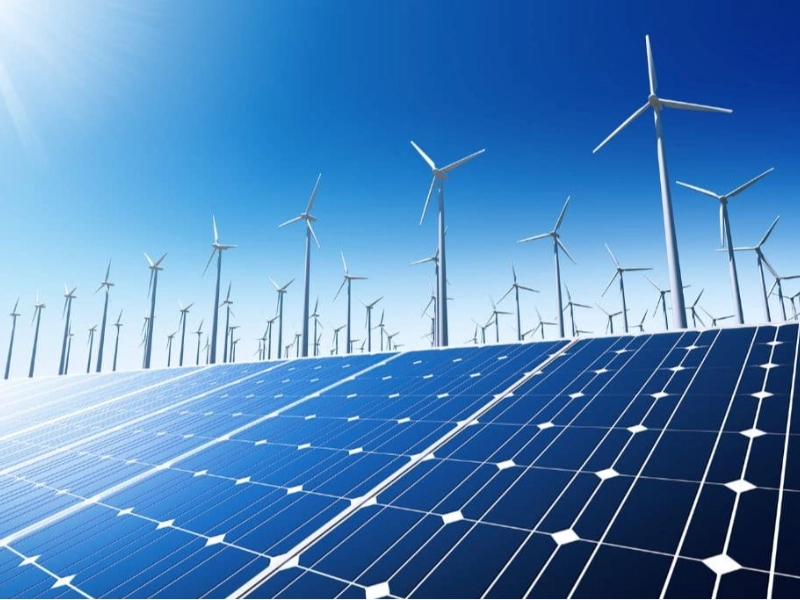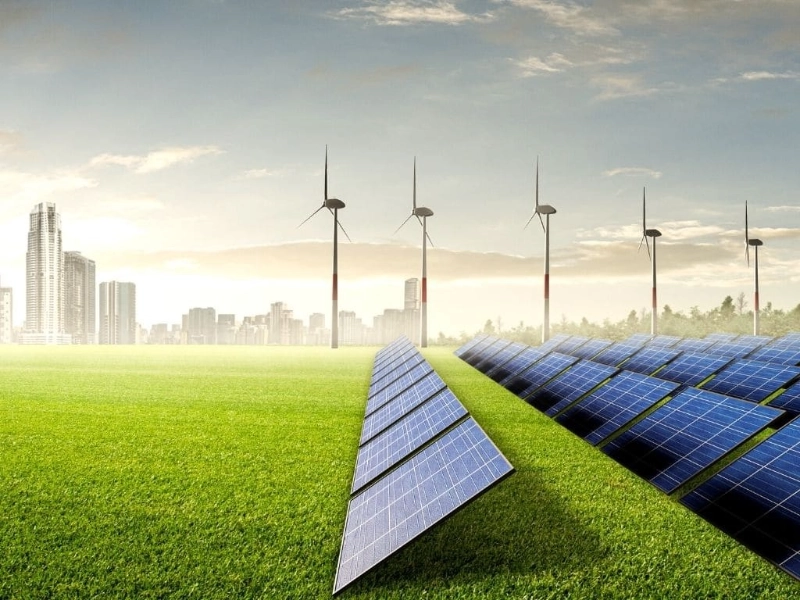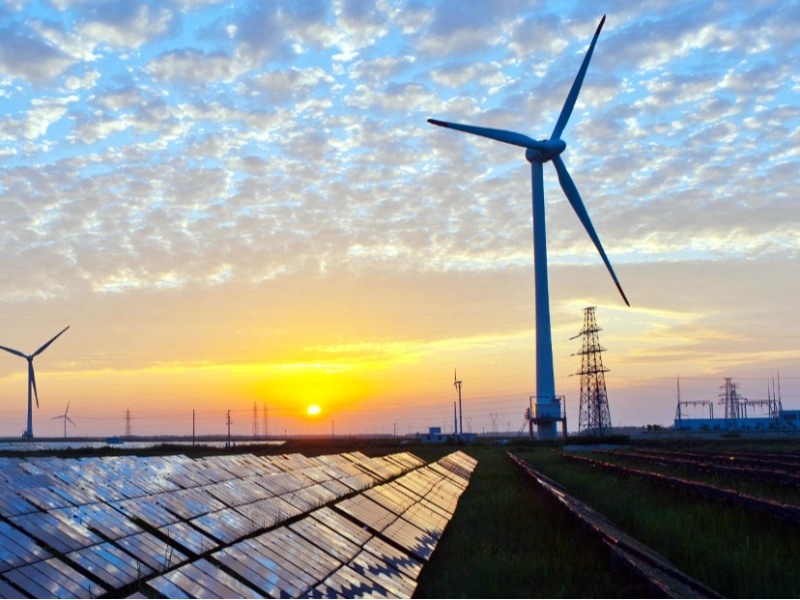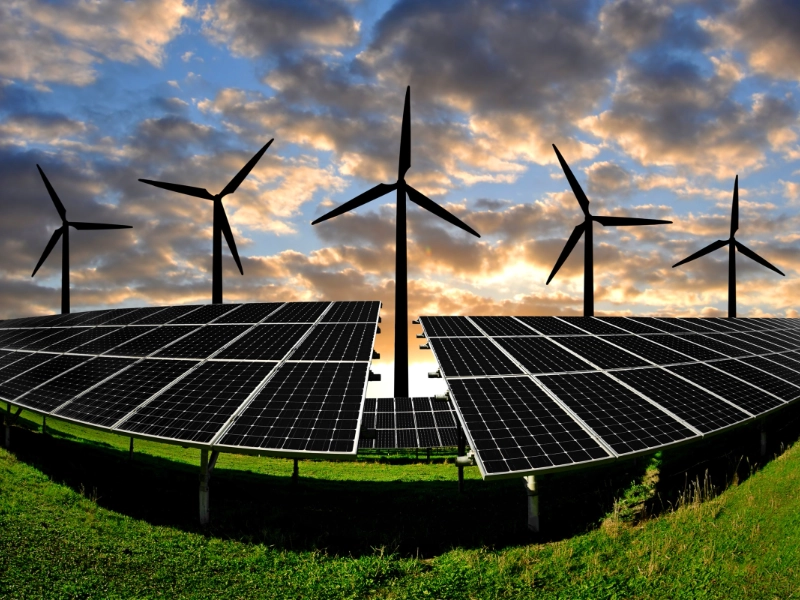What You Should Know About Renewable Energy's Future
Renewable energy sources are set to take the lead as energy demand rises. In many markets, they are less expensive than coal, gas, and oil. Additionally, businesses that create renewable energy technologies are receiving private funding. But more than just money and cutting-edge technology will be needed to make the shift to a greener planet. We also need to solve important social, governance, and environmental challenges if we are to succeed.
Price
 Amidst the increasing global issue of depleting non-renewable resources and their deleterious impact on the environment, individuals, corporations, and governments are dedicating endless effort to constructing an energy infrastructure capable of meeting our energy demands. This entails making investments in renewable energy sources, such as biogas, solar, wind, and hydropower.
The good news is that the cost of clean energy technology is constantly declining. Even without subsidies, it is now far less expensive to construct a new solar or wind power station than it is to maintain an existing coal or nuclear power plant.
Due of this, a significant number of the biggest corporations, such as Ford, Amazon, and Alphabet, have made a strong push towards renewable energy sources and electric cars. In addition to saving their consumers money on fuel expenditures, they are acting in a prudent business manner by doing this. It is also anticipated that during the next ten years, the cost of renewable energy will continue to decline dramatically.
Amidst the increasing global issue of depleting non-renewable resources and their deleterious impact on the environment, individuals, corporations, and governments are dedicating endless effort to constructing an energy infrastructure capable of meeting our energy demands. This entails making investments in renewable energy sources, such as biogas, solar, wind, and hydropower.
The good news is that the cost of clean energy technology is constantly declining. Even without subsidies, it is now far less expensive to construct a new solar or wind power station than it is to maintain an existing coal or nuclear power plant.
Due of this, a significant number of the biggest corporations, such as Ford, Amazon, and Alphabet, have made a strong push towards renewable energy sources and electric cars. In addition to saving their consumers money on fuel expenditures, they are acting in a prudent business manner by doing this. It is also anticipated that during the next ten years, the cost of renewable energy will continue to decline dramatically.
Impact on the Environment
 Renewable energy has an impact on the environment that goes beyond breathtaking coastal solar farms or lines of wind turbines stretching to the horizon. It also has to do with contracts, tariffs, and money—that is, the business of producing sustainable energy.
Globally, renewable energy sources are expanding at an exponential rate, dispelling fossil fuels and cutting greenhouse gas emissions. Also, their cost-effectiveness is rising, particularly when the hidden expenses associated with fossil fuels are taken into account.
The least expensive energy sources are frequently solar and wind power in particular. And they can get much cheaper than traditional power when combined with batteries.
But not every renewable resource is made equal. For example, large hydroelectric dams can have disastrous consequences on wildlife because they disrupt natural flows and make it more difficult for animals to access their habitats. Furthermore, biomass—which can range from discarded wood to corn stover—isn't necessarily the greatest option for renewable energy. For example, the manufacturing of ethanol fuels destructive farming practices that lead to hazardous algal blooms and competes with the food market.
Renewable energy has an impact on the environment that goes beyond breathtaking coastal solar farms or lines of wind turbines stretching to the horizon. It also has to do with contracts, tariffs, and money—that is, the business of producing sustainable energy.
Globally, renewable energy sources are expanding at an exponential rate, dispelling fossil fuels and cutting greenhouse gas emissions. Also, their cost-effectiveness is rising, particularly when the hidden expenses associated with fossil fuels are taken into account.
The least expensive energy sources are frequently solar and wind power in particular. And they can get much cheaper than traditional power when combined with batteries.
But not every renewable resource is made equal. For example, large hydroelectric dams can have disastrous consequences on wildlife because they disrupt natural flows and make it more difficult for animals to access their habitats. Furthermore, biomass—which can range from discarded wood to corn stover—isn't necessarily the greatest option for renewable energy. For example, the manufacturing of ethanol fuels destructive farming practices that lead to hazardous algal blooms and competes with the food market.
Safety of Energy
 Energy security has emerged as a major concern for many nations due to the rising frequency of natural disasters and geopolitical wars. The constant availability of sufficient amounts of energy at reasonable rates is referred to as energy security.
A nation's energy supply can also be impacted by economic, environmental, and political variables. A nation's overall energy security may be impacted by factors such as growing energy prices, air pollution, and restricted access to renewable fuels.
Energy security is a complex problem that calls for an all-encompassing strategy. For instance, switching to renewable energy sources can boost home output but also put electrical networks at risk and necessitate big adjustments to how energy is used. The secret is to use the transition in energy production as a chance to create a sustainable future rather than as a danger. Energy security and energy transition may coexist, but they have to happen together. Reaching these goals will contribute to maintaining mitigation of climate change as a top priority.
Energy security has emerged as a major concern for many nations due to the rising frequency of natural disasters and geopolitical wars. The constant availability of sufficient amounts of energy at reasonable rates is referred to as energy security.
A nation's energy supply can also be impacted by economic, environmental, and political variables. A nation's overall energy security may be impacted by factors such as growing energy prices, air pollution, and restricted access to renewable fuels.
Energy security is a complex problem that calls for an all-encompassing strategy. For instance, switching to renewable energy sources can boost home output but also put electrical networks at risk and necessitate big adjustments to how energy is used. The secret is to use the transition in energy production as a chance to create a sustainable future rather than as a danger. Energy security and energy transition may coexist, but they have to happen together. Reaching these goals will contribute to maintaining mitigation of climate change as a top priority.
Technology
 Future net-zero emissions will demand extreme technical creativity. However, collaborations between governments, corporate executives, environmental groups, communities, families, and other stakeholders will also be necessary. To overcome the strong forces upholding the status quo and discover answers to the current roadblocks preventing the advancement of renewable energy, like grid stability, new coalitions are required.
This year's additions to the global renewable power capacity are expected to reach a record level. As costs continue to decline, solar PV, the most widely used renewable energy source, is anticipated to account for two thirds of these increases.
Because renewable energy sources provide a variety of supply alternatives, they can help nations break free from their reliance on imported fossil fuels, promote economic growth, and increase climate security. This can boost resistance to extreme weather events and increasing sea levels, as well as lessen the chance of price spikes and geopolitical problems. Furthermore, switching to renewable energy sources can help the power industry become less carbon-intensive while lowering reliance on fossil fuels for transportation and heating.
Future net-zero emissions will demand extreme technical creativity. However, collaborations between governments, corporate executives, environmental groups, communities, families, and other stakeholders will also be necessary. To overcome the strong forces upholding the status quo and discover answers to the current roadblocks preventing the advancement of renewable energy, like grid stability, new coalitions are required.
This year's additions to the global renewable power capacity are expected to reach a record level. As costs continue to decline, solar PV, the most widely used renewable energy source, is anticipated to account for two thirds of these increases.
Because renewable energy sources provide a variety of supply alternatives, they can help nations break free from their reliance on imported fossil fuels, promote economic growth, and increase climate security. This can boost resistance to extreme weather events and increasing sea levels, as well as lessen the chance of price spikes and geopolitical problems. Furthermore, switching to renewable energy sources can help the power industry become less carbon-intensive while lowering reliance on fossil fuels for transportation and heating.







